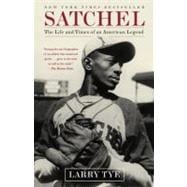
Note: Supplemental materials are not guaranteed with Rental or Used book purchases.
Purchase Benefits
What is included with this book?
| Preface | p. vii |
| Chronology | p. xv |
| Author's Note | p. xvii |
| Coming Alive | p. 3 |
| Blackball | p. 26 |
| The Glory Trail | p. 53 |
| The Game in Black and White | p. 77 |
| South of the Border | p. 108 |
| Kansas City, Here I Come | p. 136 |
| Master of the Manor | p. 158 |
| Baseball's Great Experiment | p. 180 |
| An Opening at Last | p. 204 |
| Crafting a Legend | p. 11 |
| Maybe I'll Pitch Forever | p. 267 |
| Acknowledgments | p. 299 |
| Appendix: Satchel by the Numbers | p. 301 |
| Notes | p. 305 |
| Bibliography | p. 343 |
| Index | p. 379 |
| Table of Contents provided by Ingram. All Rights Reserved. |
The New copy of this book will include any supplemental materials advertised. Please check the title of the book to determine if it should include any access cards, study guides, lab manuals, CDs, etc.
The Used, Rental and eBook copies of this book are not guaranteed to include any supplemental materials. Typically, only the book itself is included. This is true even if the title states it includes any access cards, study guides, lab manuals, CDs, etc.
Excerpted from Satchel: The Life and Times of an American Legend by Larry Tye
All rights reserved by the original copyright owners. Excerpts are provided for display purposes only and may not be reproduced, reprinted or distributed without the written permission of the publisher.